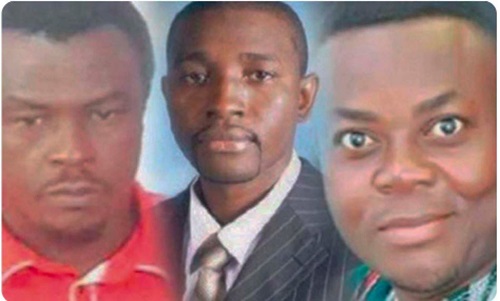Over the past few days, for a variety of reasons, my mind has idly gravitated towards several issues, including the Akan concept of dwantoa’.
Literally meaning ‘run to seek refuge’ (dwane toa) in Twi, dwantoa, presumably a corrupted version of the original expression, is the process by which one seeks the assistance of a more prominent person in seeking mercy or forgiveness for a grave wrong or mitigation of punishment thereof from a higher authority.
Many Akan traditional courts have their own Dwantoahene, a sympathetic chief through whom people can seek help. I believe most of you readers have, on some occasions, been called upon by desperate transgressors to intercede on their behalf.
It is quite satisfying to be deemed sufficiently influential and credible to perform dwantoa, and in my limited experience, it requires quite some deft advocacy skills. It has been said in several quarters that, particularly in corruption cases involving influential defendants, various traditional rulers, men of the cloth and other highly-placed individuals have, over the years, been known to parade the corridors of power as dwantoa emissaries, seeking to have prosecutions halted.
Many have complained about this claimed development, insisting that the law must at all times be allowed to run its full course if we are to fight corruption.
Christian parallel
If one were to look for parallels to dwantoa, perhaps the concept of intercession in Christendom, particularly within the Catholic Church, where the Virgin Mary and the saints are all implored to intercede to God on our behalf for our plethora of sins, is the closest.
I was amused to learn the other day that in Catholicism, St. Jude is the patron saint of hopeless causes. Indeed, the whole point of Christianity turns to Jesus Christ, in supplication to God the Father, coming to earth as a man and going through the ultimate sacrifice of death, so that our sins may be forgiven.
In effect, therefore, through his death and resurrection, Christ became the ultimate Dwantoahene of Christendom.
Constitutional, statutory dwantoa
Our modern governance system is not devoid of its own ‘dwantoa’ features. First is the prerogative of mercy, as provided for under Article 72 of the Constitution. By this, the President, acting in consultation with the Council of State, can grant a convict a pardon by freeing him, can grant him respite from the execution of a punishment, substitute a lesser punishment or remit a whole or part of the punishment.
Remember the presidential pardon granted the Muntie 3 by President Mahama in 2016? In addition to this is the ‘plea bargain’, which is recognised by our criminal justice system with the passage of the Criminal and Other Offences (Procedure) Amendment Bill, 2021.
This refers to a process where an accused person negotiates an agreement with the state to relinquish the right to go to full trial in exchange for a more lenient sentence or some other benefit.
The accused person, his lawyer (if he has one) or the prosecutor in charge of the prosecution may initiate plea bargain negotiations at any time before judgment is delivered. Further, s. 35 of the Courts Act, 1993 (Act 459) allows an accused person to plead guilty and pay restitution to the state in cases where there has been a financial loss to the state.
Those familiar with the trial of Mr Ato Essien, last year, formerly of Capital Bank, will recall that he sought refuge in this provision. However, he was unable to abide by the terms of the agreed payment plan and subsequently ended up in jail.
It is also perfectly legal for a person to admit to an offence and offer to provide information that will aid in the arrest and/or prosecution of other persons for corruption or corruption-related offences, usually in return for lesser charges.
In the just-ended Donald Trump trial in the US, for instance, several of his co-defendants turned on him and sang like canaries in an attempt to save their own skins. It is, I suppose, a prosecutor’s goldmine.
Key dwantoa skill
For as long as ‘dwantoa’ firmly remains a legitimate part of our traditional governance and social constructs, it is going to be difficult to prevent it from seeping into the corridors of state power, however undesirable the consequences.
If not controlled, it risks becoming a ‘Crook’s Charter’, thereby compromising the deterrent principle so key to fighting corruption. Note of friendly advice, though if you ever need to ‘dwane toa’. Perhaps a key skill here is to avoid irritating the principal whose mercy or cooperation you seek.
Your emissary is most likely to give up on you in frustration, thereby bringing down the full weight of the principal’s fury. After all, our forebears, in their wisdom, said that one does not knock the head of the person in whose mouth one’s hand is firmly lodged.
Rodney Nkrumah-Boateng,
Head, Communications & Public Affairs Unit,
Ministry of Energy.
E-mail: rodboat@yahoo.com

